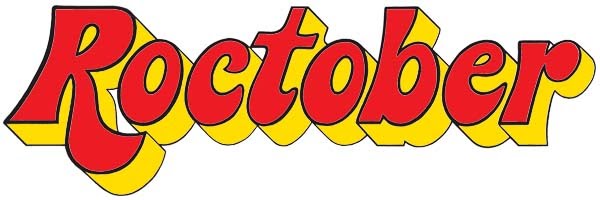(NYRC/MCA, 2021) The exhibit/survey/celebration of Chicagocomics currently taking place at the MCA and Chicago Cultural Center (with Dan Nadel, Chris Ware, & Tim Samuelson doing most of the heavy curatorial lifting) is tremendous and (along with parallel exhibits at smaller spots featuring contemporary artists left out of these exhibits, and even a huge retrospective of Bill Maudlin running down the block from these) will profoundly influence local artists, guaranteeing Chicago will continue to be a magical place for comics making. There is not a big exhibit catalogue for the whole shebang (a docent told me she heard it was so the artists in the MCA's 1960s-today portion could sell a lot of individual works at the museum store), but what they did produce was incredible. The only pre-1960s work at the MCA is early work by Black artists at the Chicago Defender newspaper, particularly Jackie Ormes gorgeous satirical work about a little girl's perspective of 1940s urban life. Ormes work is, if not the heart of this collection, an important part of the soul of It's Life As I See It, a volume reprinting significant portions of work by nine Black comics artists that worked in Chicago in the 20th Century. Some of it is as mainstream as is possible for a marginalized community, with two other Defender artists being presented with extremely significant works. The craziest thing here is a run of Jay Jackson's turn on the long-running, and ever changing, Bungleton Green comic. In this 1944 version we see a sci-fi story where in the future Whites are the minority and prejudice may or may not plague society in the same ways. Decades later the Defender would showcase Morrie Turner's Dinky Fellas, a multi-ethnic, stereotype exploring take on Peanuts which would become the mainstream comic/cartoon Wee Pals. But underground comix are well represented here, with a passionate and relatively clean piece by Indiana neighbor Grass Green, who was a thrilling voice both in the 70s undergrounds and also in the fandom movement where a network of zine makers traded their takes on standard superhero stories. Seitu Hayden and Turtel Onli, both Hyde Parkers who we are excited to have worked with in Roctober, and will always be important for their work with Pedro Bell in the Funkadelic realm, both are included. Hayden's slick and very funny humor strips make it hard to attribute his lack of comics stardom to anything but closed doors. Onli's (as well as the complimentary work of Yaounde Olu) proved so radical and afro-futuristic that it was carving out definitions of success the mainstream could not comprehend. Tom Floyd's gag cartoons about being a token Black during post-Mad Men-era office life are hilarious and heartbreaking. And the most exciting stuff in the book are the comics and essay by Charles Johnson, a fascinating author, artist, TV star, and visionary who created a book of radical 70s humor gags that was published by Johnson (Ebony/Jet) in the 1970s. I sought that book out when I saw a copy of it a different MCA art exhibit, where Theaster Gates explored the Johnson office space where it was on a bookshelf. But the copy of Black Humor I got from the library was different than the work here, as Johnson actually re-drew some of his panels to improve upon them (in his opinion). His work, in the museum and in the pages of this fantastic collection, is painfully funny. With cover art by the greatest living contemporary painter, Kerry James Marshall, this is a comics collection EVERYONE should own.
Tuesday, July 13, 2021
It's Life As I See It: Black Cartoonists in Chicago 1940-1980, edited by Dan Nadel
Subscribe to:
Post Comments (Atom)



No comments:
Post a Comment